Is Afghanistan’s economy unravelling under the Taliban?
Several weeks after the Taliban takeover, the Afghan economy is at an abrupt and perilous standstill. Pamela Constable explores the effect it’s having on people
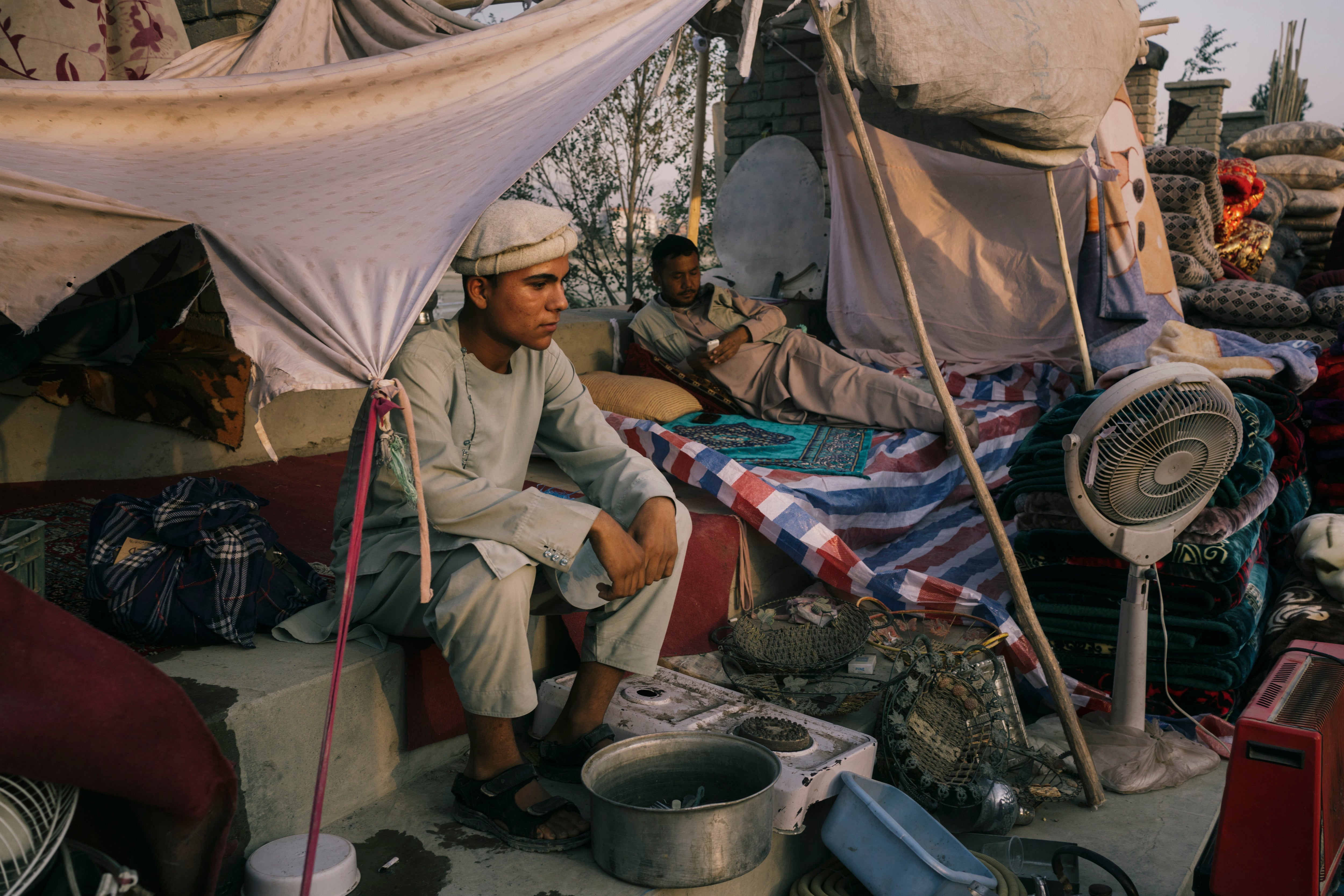
Amman Nasir, 18, used to make steel safes in a workshop on a contract with the US army. Now the American forces are gone, the workshop is locked and Nasir, along with all 15 other employees, is jobless.
His neighbour Sharifa Ali, in her forties, had to close her tailoring shop after the government fell to the Taliban in August and customers stopped coming. Forced to sell her best kitchenware in a flea market, she is hoping she won’t have to part with her sewing machine, too.
“Every family is facing the same crisis,” says Nasir, who had piled some blankets from home on a sidewalk, hoping someone would buy them. “People are not as afraid as they were when the Taliban first came. The problem now is our empty stomachs.”
Across the Afghan capital, evidence of the country’s fast-unravelling economy is everywhere – from the angry crowds of unpaid government workers waiting outside banks that have run out of cash, to the tent camp of war-displaced families that has taken over the main city park, to the jumbled piles of household goods that have sprouted on corners and vacant lots.
In a matter of weeks, several cascading events – the final withdrawal of US troops, the mass surrender of Afghan forces, the collapse of the national government and takeover by Taliban militants, and a chaotic mass evacuation punctuated by a deadly airport bombing – have brought the Afghan economy to an abrupt and perilous standstill.
The impoverished country of 40 million was already reeling from severe drought and months of fighting when the extremists took power in mid-August, prompting foreign donors and governments to suspend millions of dollars in aid that had long propped up the western-backed government. International financial systems also shut off access to cash and credit.
For nine years I did a dangerous job for my country, and now it seems worth nothing
So far, Taliban officials have not revealed any concrete plans to tackle the looming economic crisis, instead, blaming the west for interfering in Afghanistan’s internal affairs.
Today, government offices are shut, and the central bank is releasing only partial salary payments for teachers, police and office workers; the major private bank is doing the same with depositors’ money. Many wealthier Afghans have fled the country and business owners are struggling to stay afloat. Inflation is rapidly driving up food prices, and the sidewalk bargain economy has largely replaced the formal one.
Day after day, hundreds of people form unruly lines outside the main office of New Kabul Bank, waiting for their turn at the sole ATM that dispenses only a fraction of what they are owed. Those who don’t reach the guarded entrance by dark must return the next morning.
“I don’t know what to do. I have three children and nothing to feed them,” says Raza Khan, 30, a former Afghan army soldier in line who was trembling with distress. Still trying to withdraw $180 (£130), his final salary in August, Khan says he had extracted only $50. “For nine years I did a dangerous job for my country, and now it seems worth nothing,” he says.
Two blocks away, beneath the towering pines of Shahr-e-Nau park, several hundred families displaced by rural fighting are camped in makeshift tents, waiting for help to materialise while they heat their meagre meals and tend to scores of children, many coughing or crying. Rubbish is strewn everywhere.
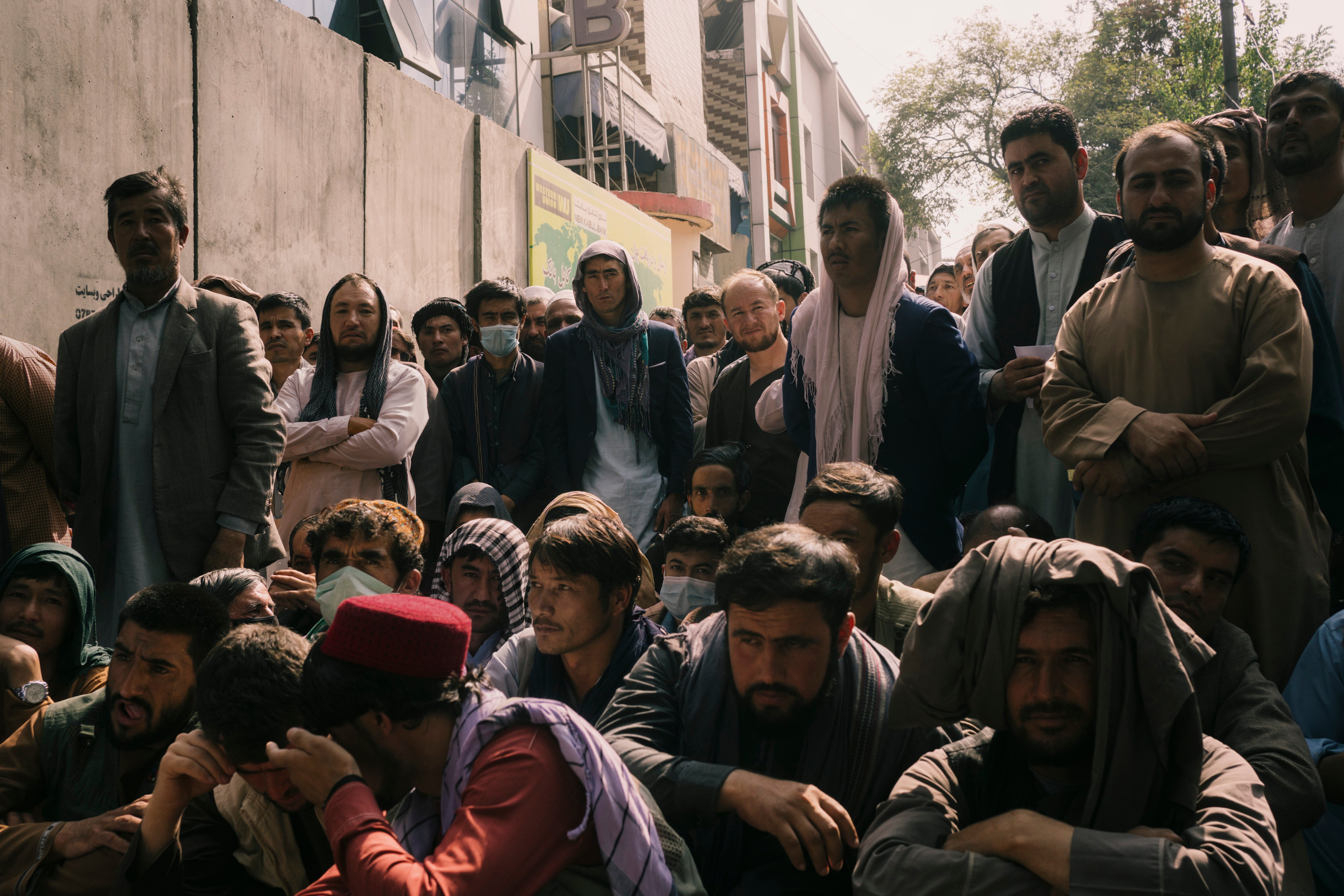
A slight man in his forties, who uses the single name Ghausuddin, says his house in northern Kunduz province had been destroyed by rockets during intense fighting in July. Along with their neighbours, he and his family fled by bus to Kabul, then considered a safe haven. They brought their savings of $300, which was soon gone. After two months in the park, he says, they still have no plans.
“We had to leave everything behind, and we have nothing to go back to,” he says. “But winter is coming soon, and we can’t stay here in the cold.” Back in Kunduz, Ghausuddin worked grilling kebabs for $3 per day. “I haven’t had any kebab since then, but I can still smell it,” he says.
International aid groups have warned in increasingly apocalyptic terms that Afghanistan is hurtling toward a nationwide humanitarian crisis. They say millions of people already depend on donations to eat or can no longer sustain their families. In one recent week alone, the World Food Program reported, more than 90 per cent of Afghans did not consume enough food.
Jan Egeland, the secretary-general of a Norwegian aid group long active in Afghanistan, visited Kabul last week and described the Afghan economy as “spiralling out of control”. He says the banking system could collapse “any day” and that aid groups are “in a race against the clock” to stave off mass hunger and sickness as the frigid winter sets in.
Egeland says that even Afghan staffers with his agency, the Norwegian Refugee Council, cannot get access to their full salaries. With most trade halted, foreign aid suspended and no secure way to get dollars into the country, the national currency has plummeted and the price of flour, rice and other staples has skyrocketed. “Imagine this situation multiplied for every employer across the country,” he says.
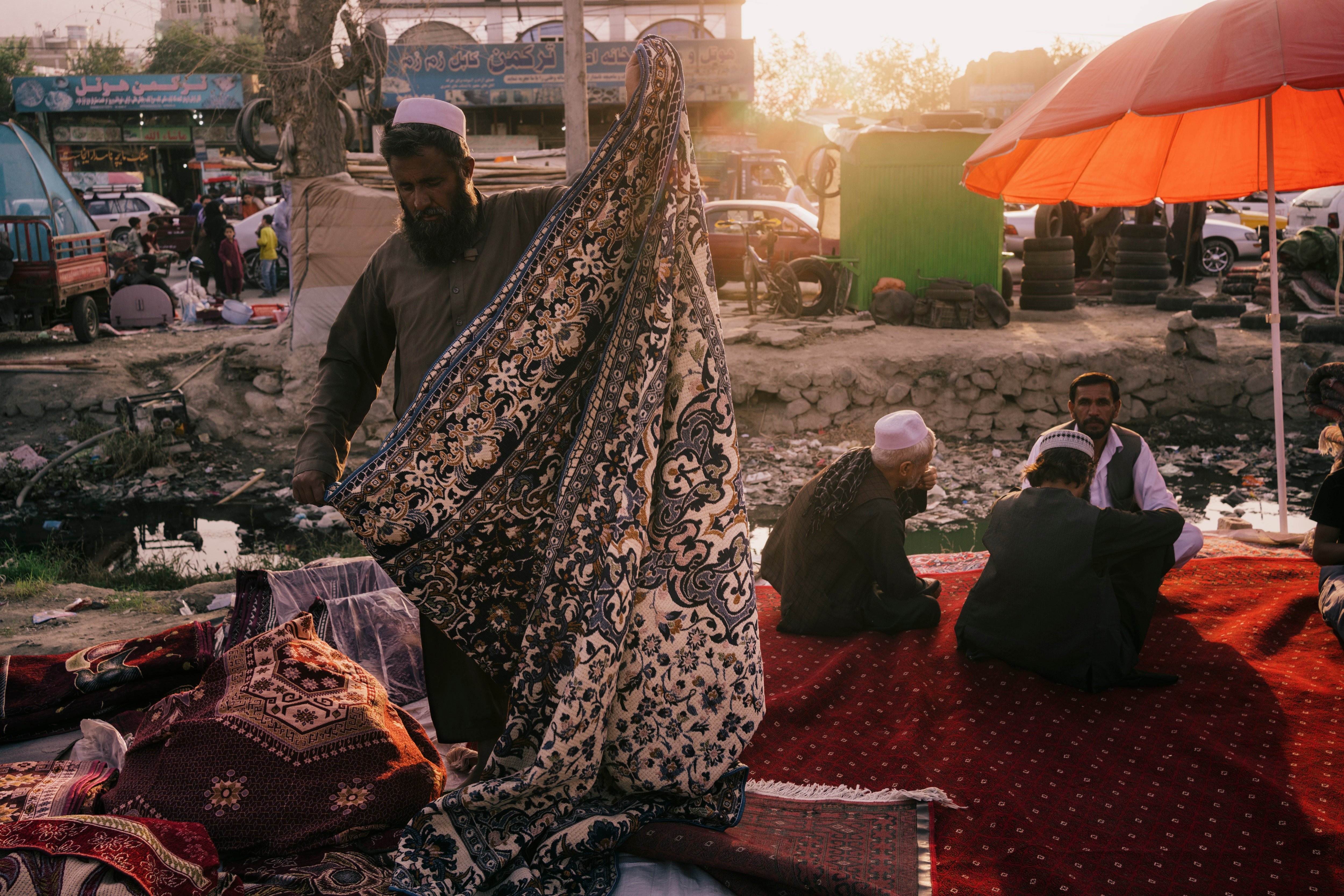
In a way, all of these struggling Afghans – whether war refugees, unpaid teachers or jobless labourers – are hostages to a global standoff between foreign donor governments and financial institutions, and the new Taliban authorities.
On one side, the international community is waiting to see whether Taliban officials will return to the harsh religious codes and punishments they practised in their previous regime from 1996 to 2001.
So far, the evidence is mixed. Taliban religious enforcers are no longer whipping people in public, but former fighters employed as street cops have beaten protesters and journalists. Women are barred from working and attending college until offices and classrooms are separated by gender, and one case of old-style Taliban justice in the western city of Herat – the public hoisting of four corpses, allegedly slain kidnappers – has aroused fears of more harsh actions to come.
On the other side, Taliban officials have repeatedly blamed unfair foreign pressure as the major cause of Afghans’ plight. They insist they want good relations with the world but accuse international critics of unacceptable interference with Afghan religious and cultural values.
“We are trying to solve this crisis, but the United States and other international organisations have frozen the money and aid that was pledged to us,” says Inamullah Samangani, a Taliban spokesperson. “Putting pressure on us is not the right approach. We cannot do this alone. We want to negotiate and find a peaceful solution to the problem.”
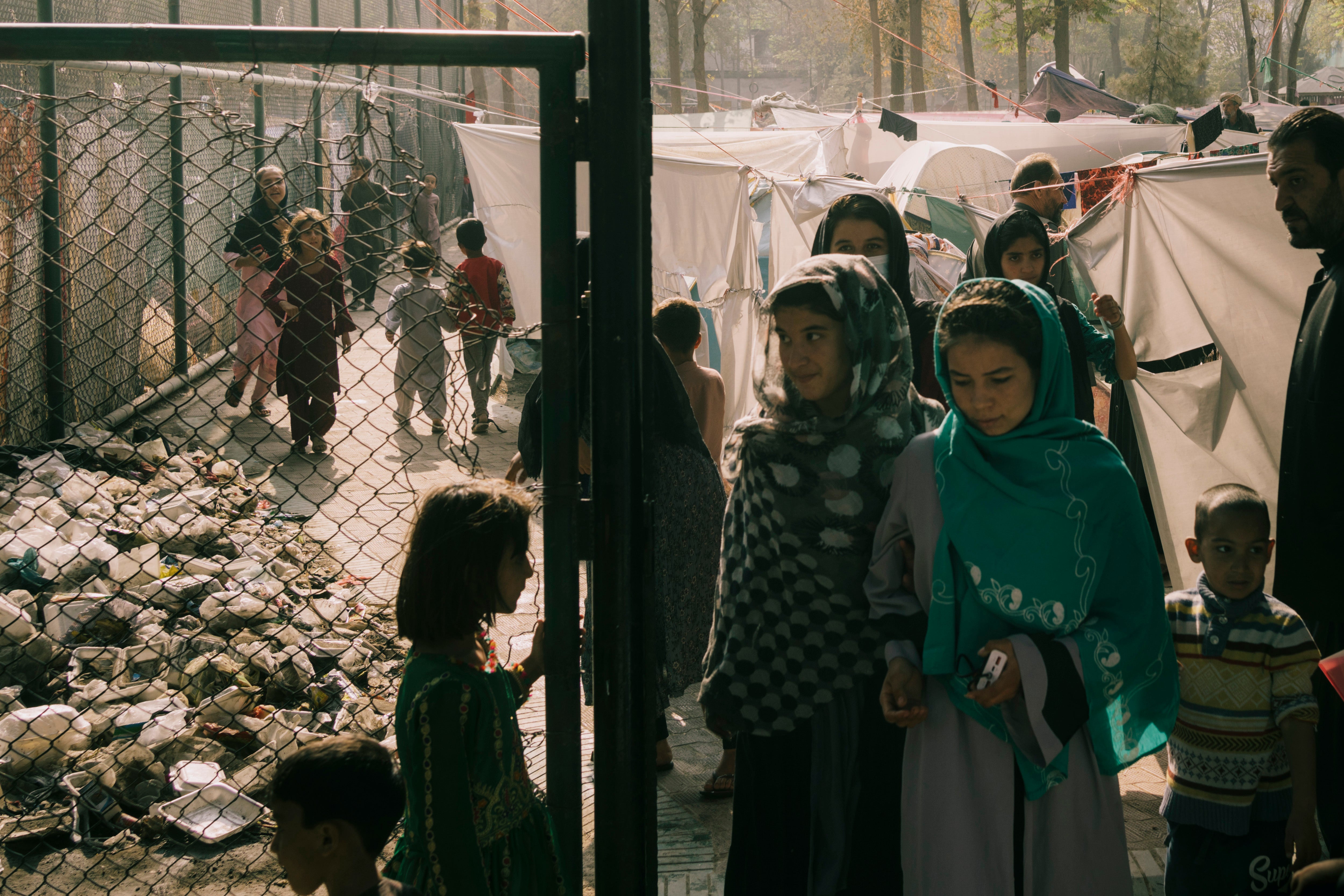
Asked what plans the new authorities are making to deal with the crisis or reach out to foreign groups, Samangani does not provide specifics. He says the country badly needs to restore trade, investment and bank activity, but he rejects any quid pro quo with foreign entities based on internal Afghan policies and suggests that the world will be responsible if Afghans starve.
“We are ready to engage, but the international community should avoid setting preconditions,” he says. “If they ban our assets, 90 per cent of the Afghan people will fall into poverty. Isn’t this also in contradiction with the principles of human rights?”
As predictions of suffering grow more dire, aid groups are attempting to straddle the standoff. Egeland says UN members should “broker a multilateral agreement” to stabilise the economy, fund public services and restore cash flows. He suggests possible conduits such as channelling assistance through UN trust funds. “We must support the Afghan people no matter what,” he says.
Meanwhile, across the capital, the bustle of open-air markets and the roar of traffic belie the worry and tension that are immediately evident in conversations with people across the economic spectrum – from glittering downtown emporiums without a single customer, to shabby neighbourhoods where handcart pushers for hire wait all day with no goods to carry.
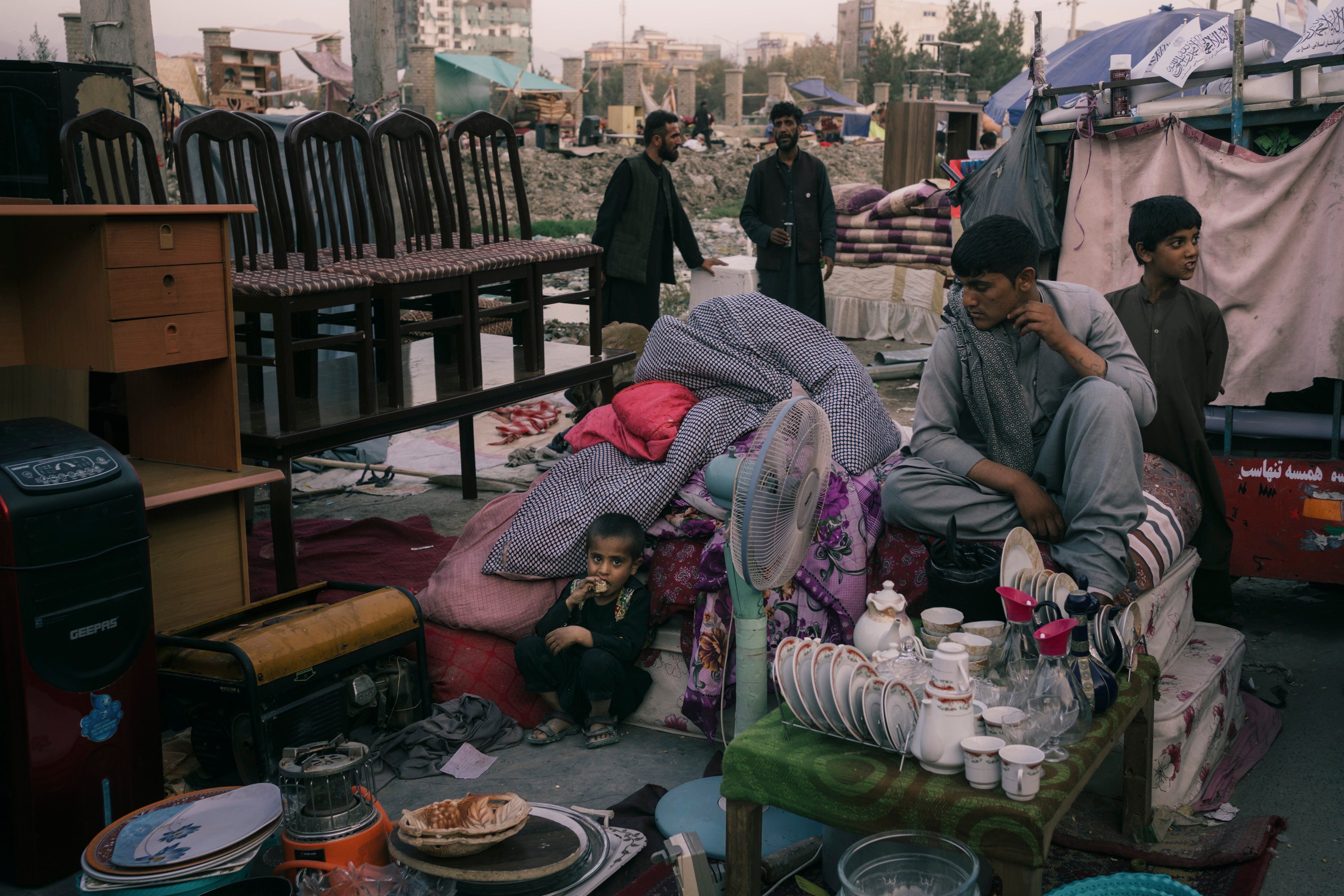
In a brightly lit, glass-countered mobile phone shop, owner Sidiqullah Khan says he feared his 17-year investment in the rapidly modernising Afghan economy might now be lost.
“Things are safer now. There are no mosques being bombed, and the new Taliban seem to be softer than the old ones, but people are still fearful,” Khan says. His customers are also increasingly desperate. On some days, he says, “We have more people coming in to sell their used phones than looking to buy new ones.”
The saddest scenes, though, are the ubiquitous jumbled piles of household goods, telling mute tales of sudden downward mobility and flight that have cut across all classes.
Sets of ornate china dishes and brocaded chairs, which may have graced the parlours of long-gone bureaucrats or traders, are arranged on pavements alongside rusty fans and cooking pots, relinquished by poor families for pennies. There are also baby cribs, strollers and stuffed animals, looking especially forlorn.
Mahmad Akbar, 51, who sells used goods on a road overlooking the desiccated Kabul River, says he had recently watched people cry when they handed over cherished belongings.
“Only three times in my life have I seen the situation this bad,” Akbar says. “The first time was about 30 years ago, when the Russians left and the mujahideen came and fighting broke out. The second was about 20 years ago, when the Taliban took over and people ran away. This is the third.”
© The Washington Post
Subscribe to Independent Premium to bookmark this article
Want to bookmark your favourite articles and stories to read or reference later? Start your Independent Premium subscription today.





Join our commenting forum
Join thought-provoking conversations, follow other Independent readers and see their replies
Comments